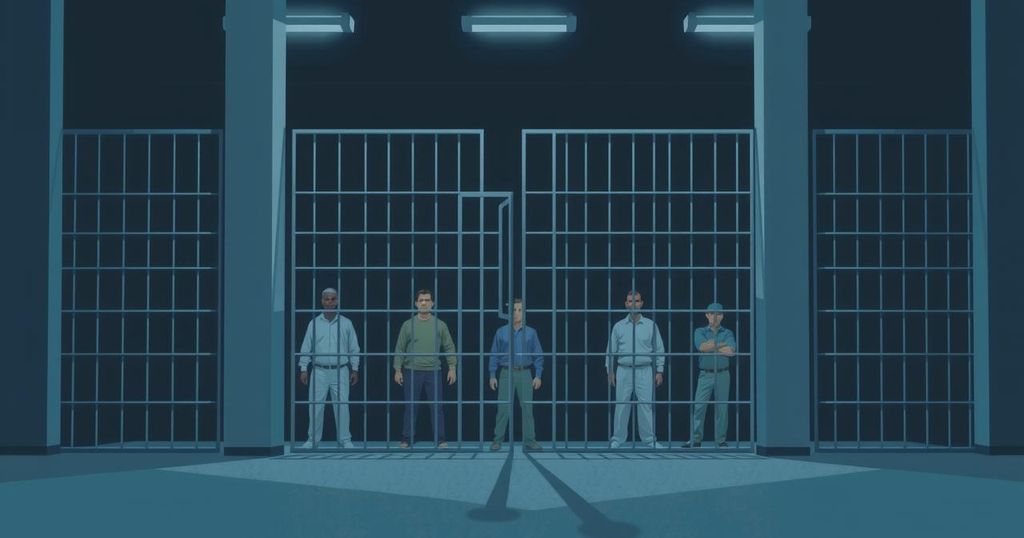Crime
ABC NEWS, ASIA, CRIME, CUBA, EL PASO, EL SALVADOR, ES, ESCALONA, EXTRADITION, IMMIGRATION AND CUSTOMS ENFORCEMENT, JUSTICE, LAW, MAIKER ESPINOZA ESCALONA, NORTH AMERICA, PHILIPPINES, PRISON SENTENCE, RAIDA, SOUTH AMERICA, TRE, TREN DE ARAGUA, TRUMP, U. S, U. S. IMMIGRATION AND CUSTOMS ENFORCEMENT, UNITED STATES, VENEZUELA, VIOLENCE, YO
Marcus Chen
0 Comments
The Controversial Deportation of Venezuelan Migrants to El Salvador
The Trump administration has deported over 200 alleged Venezuelan gang members to a mega-prison in El Salvador, despite many lacking criminal records. Family members and lawyers assert that these individuals are not gang members, highlighting their struggle for asylum and fear for their safety in detention.
In recent months, the Trump administration has deported over 200 purported Venezuelan gang members to a notorious mega-prison in El Salvador, known for human rights abuses. This action has raised concerns among families and legal representatives, many of whom vehemently deny gang affiliations and assert fears for the safety of their loved ones.
One of the deportees, Maiker Espinoza Escalona, was sent to El Salvador on March 30. He had previously sought asylum in the United States with his family. Authorities accused him of belonging to the Venezuelan gang Tren de Aragua; his family has rejected these claims, with his mother stating, “They are liars. I cannot believe that half of Venezuela is Tren de Aragua. That can’t be.”
Jose Franco Caraballo Tiapa, a 26-year-old migrant detained during a routine ICE check-in in March, was deported on March 15. His wife claimed that despite their routine check-ins without issues, Tiapa was not allowed to return home on a scheduled court appearance day. She provided documentation confirming his lack of a criminal record.
On the same day, Francisco Garcia Casique was also deported. Initially entering the U.S. in December, he sought a better life as a professional barber. His family expressed disbelief at his deportation, calling it a nightmare. They had seen his image in a government photo after his removal.
Kilmar Armando Abrego Garcia, a Salvadoran national with legal status, was sent back due to an alleged “administrative error.” Abrego entered the U.S. seeking refuge from gang violence and had maintained legal protections. His attorneys refuted claims of gang affiliation, emphasizing the lack of evidence.
Jerce Reyes Barrios, who legally crossed into the U.S. after escaping political persecution in Venezuela, was deported on March 15. Accusations of gang links arose from a tattoo that his attorney clarified was a tribute to Real Madrid, not gang-related. Despite lacking a criminal record, Barrios’s removal was defended by federal officials despite strong family support and criticism for the lack of evidence.
The deportation of these individuals highlights ongoing concerns regarding the treatment of asylum seekers and migrants in the U.S. Families of the deported cite a lack of clear evidence for gang affiliations, raising significant questions about the government’s practices and the protection of vulnerable populations. Each case reflects a broader issue of immigration policy and the experiences of migrants fleeing violence and persecution.
Original Source: abcnews.go.com




Post Comment